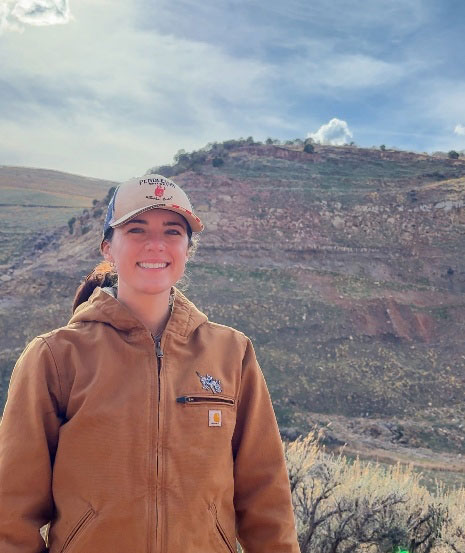Scholarships
RMAG Foundation Scholarship
The Trustees of the RMAG Foundation may elect to award this scholarship to an applicant demonstrating outstanding research abilities and achievement. There are no restrictions on school affiliation or field of study as long as it is geoscience oriented. The Trustees may not elect to award the Scholarship every year.
The 2025 RMAG Foundation Scholarship was awarded to:

Jessica Hiatt, PhD Candidate, Geological Engineering, Colorado School of Mines
Jessica’s research will identify and quantify the spatiotemporal dynamics of underground coal fires using an integrated approach that combines multi-temporal spaceborne and airborne remote sensing, ground-based monitoring, and geospatial data fusion techniques. These techniques will be used to detect surface deformation and changes in soil and vegetation characteristics as indicators of underground coal fires. Geospatial modeling will link surface and subsurface data, to characterize how ground deformation and land cover change indicators correlate with subsurface information. A subsurface data 3D stratigraphic model will be constructed from borehole drill logs and underground coal fire 3D thermal dynamics reconstructed from borehole temperature measurements, unmanned aerial vehicle thermal imaging, and field surface temperature mapping. Statistical tools will quantify spatial distribution patterns, identify high-risk zones, and assess potential impacts on infrastructure and the environment. These analyses will enable generation of dynamic outputs, including risk maps, subsidence areas and fire progression models.
Jessie’s work is under the direction of Dr. Wendy Zhou
Jessie has a MS degree in GIS and Geoinformatics from the Colorado School of Mines and a BS degree in Geological Engineering, also from the Colorado School of Mines
Recent winners of the RMAG Foundation Scholarship:
2024 Bruno Belotti, University of Idaho
2023 Molly McCreary, University of Utah
